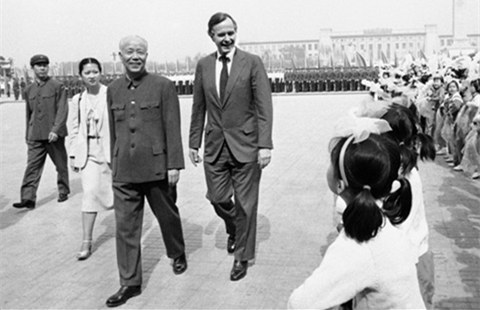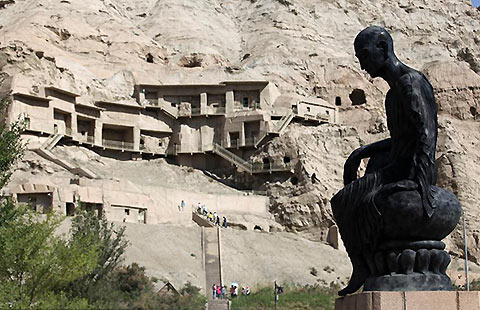Petcoke called key in pollution fight
Updated: 2015-07-16 11:36
By Hua Shengdun in Washington(China Daily USA)
|
||||||||
The way China handles "petcoke", a dirtier but cheaper version of coal, can substantially influence the country's efforts to clean its air, said energy expert Wang Tao.
"Without addressing petcoke, there is no way we can win the fight against air pollution," Wang said.
Wang is a resident scholar at the Carnegie-Tsinghua Center for Global Policy and runs the China and Developing World Program. He discussed China's petcoke management at the Carnegie Endowment for International Peace in Washington on Wednesday.
Petcoke, or petroleum coke, is a byproduct of petroleum refining that is high in contaminants, including sulfur. Low-sulfur petcoke is widely used in metal manufacturing, while high-sulfur petcoke is burned to generate power and heat, Wang explained.
According to Wang, petcoke has 11 percent more greenhouse gas emissions than coal, and nearly twice the emissions of natural gas. Its sulfur emissions also are a few times higher than coal.
The Jing-jin-ji area (Beijing-Tianjin-Hebei, a major region in northern China that circles the capital city, which suffers terribly from air pollution) has about 1.59 million metric tons of SO2 emissions each year. Wang says the petcoke burnt in China accounts for almost just as much, assuming it has 3 percent sulfur, which may be an underestimate.
"The Jing-Jin-Ji area plans to reduce coal consumption by 63mt by 2017. That target could quite easily be offset by the release of SO2 by petcoke alone," Wang concluded.
The US has been producing petcoke since the 1930s, explained Richard Lattanzio, environmental policy analyst at the US Congressional Research Service.
Lattanzio said the US has been producing about 60 million metric tons of petcoke per year. Historically about half of that is exported, but in recent years the percentage grew to around 70 percent, as the United States has found petcoke less useful.
Of the more than 70 countries to which the US exported petcoke, China was the third largest petcoke receiver, following India and Japan.
Wang said one of the main reasons China's demand for petcoke surged is that a high coal price pushed smaller heavy industries to look for alternative fuels. In the meantime, while the US found petcoke less useful in recent years, it still has large amounts of petcoke that can be exported.
Before 2012, US petcoke was about 25 percent cheaper than standard coal, Wang said.
Dong Xiucheng, director of the Beijing-based China University of Petroleum's China Oil and Gas Center, told Caixin in a 2013 interview that refineries are being "bled dry" to maximize profits.
Liu Jingyang in Washington contributed to this story.

 World's first figure 8 Ferris Wheel to be opened in Macao
World's first figure 8 Ferris Wheel to be opened in Macao
 Heavy downpour hits SW China
Heavy downpour hits SW China
 Wan Li: A life in photos
Wan Li: A life in photos
 22 World Heritage Sites in China along the Silk Road
22 World Heritage Sites in China along the Silk Road
 A day of masks
A day of masks
 France celebrates Bastille Day
France celebrates Bastille Day
 China's northernmost high-speed railway enters trial operation
China's northernmost high-speed railway enters trial operation
 Eight industries the shared economy will transform
Eight industries the shared economy will transform
Most Viewed
Editor's Picks

|

|

|

|

|

|
Today's Top News
China's GDP grows by 7%
Japan passes disputed bill
Petcoke called key in pollution fight
Service sector bolsters China’s GDP despite stock woes
Bush, Clinton dominate early presidential fundraising
Tiny Pluto sports big mountains, New Horizons finds
Greek parliament approves debt deal and first reforms
China's Internet giants reprimanded over obscene clip
US Weekly

|

|







